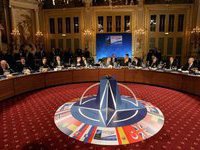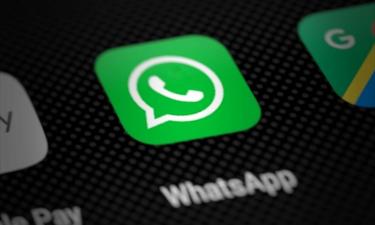Was it possible to save Yugoslavia?
March 24 marked the 13th anniversary 24 of NATO bombing of Yugoslavia. Was it possible to prevent the bombing? Could Russia have saved the Serbs? The former Russian Prime Minister Evgeny Primakov, a participant of those events who has made a turn over the Atlantic, talked about it in an interview with Pravda.Ru.

On March 24, 1999 NATO began bombing Yugoslavia. Its outcome was the virtual failure of the country, retraction of the Yugoslav People's Army (JNA) from Kosovo and the subsequent de facto separation of the region from Serbia. Today, many in Russia say that the country has not helped the fellow Serbs and actually gave them at the mercy of the NATO war machine.
One of the highlights of those days was the famous "turn over the Atlantic" of the aircraft with Russian Prime Minister Evgeny Primakov on board. He was on his way to the United States for an official visit. However, when he was given the information about the beginning of the bombardment, he turned the aircraft over the Atlantic Ocean and aimed back.
Why did he do this? Was there a chance to avert the bombing? Primakov talked about the events with the chair of the board of directors of "Pravda.Ru" Vadim Gorshenin:
"I do not think it was some feat. I made the decision myself. After that, Yeltsin called me and I told him that I took such a decision. He approved of it. If I had not done this, I would have done very wrong thing.
Al Gore told me directly: the decision to bomb has been made. I replied that he was making a huge historical mistake. (My phone call was made from the aircraft, he was then vice-president.) He asked me to sign a memorandum of understanding that the visit is postponed. I refused. He offered to land somewhere in the United States, I again refused.
If under those circumstances I would have landed and began my official visit, I would have been a traitor. There was no heroism there. I am sure that Vyacheslav Trubnikov (former head of the Foreign Intelligence Service. - Ed.), and Igor Ivanov (then head of the Russian Foreign Ministry. - Ed.) would have done the same thing. At that time it was impossible to prevent the bombing. "
Was there a chance to avert the war or change its course? Vadim Trukhachev, an observer with "Pravda.Ru" talked about this with historians Sergei Romanenko and Vladimir Putyatin.
Sergei Romanenko, an expert of the Center for Political Studies with the Institute of Economics of RAS:
"Slobodan Milosevic had a chance to avert the war. In this regard, Rambouillet comes to mind (the negotiations in Rambouillet near Paris between delegations of Yugoslavia and the Kosovo Albanians in early 1999. - Ed.). There are different assessments of the agreement, but in any case it was breached by the Serbian side. It seems that this was his last chance. Russia was also aware of this - although at the time there were several centers of foreign policy.
Kosovo Albanians should erect a monument to Milosevic as the founder of the Kosovo Albanian government in the center of Pristina. If it had not been for his policies and violent suppression of peaceful population, it seems that neither the U.S. nor the EU nor NATO would have paid attention to this issue. On the other hand, he acted according to his logic - political and psychological.
The disintegration of Yugoslavia and later events were unexpected for the world community. It (both in Russia and in the West) did not understand what problems Yugoslavia faced during its disintegration.
Could NATO avoid bombing? Of course, it could. While criticizing Milosevic, it should be noted that the West has chosen a dead-end option. The U.S., NATO, and the EU have reached an impasse and were putting out fires. A war always means death of innocent people. They do not care who kills them and why. These bombings were a gesture of helplessness and lack of understanding. "
Vladimir Putyatin, an expert on Yugoslavia at the History Department of Moscow State University:
"In December of 1998, Russia and Yugoslavia signed a protocol on military-technical cooperation. However, the main obstacle in the delivery of military equipment to Yugoslavia was the UN Security Council resolution banning the supply of any weapons there. Russia also voted for this resolution. From a military point of view, along with the supply of weapons - mostly air defense systems - Russia should have sent its military experts as the Army of Yugoslavia did not have such missile systems. In the event of a direct military conflict, it would have been able to provide decent resistance to NATO forces."
Military experts Alexander Khramchikhin and Konstantin Sivkov shared their opinions on Russia's ability to help Yugoslavia with a columnist of "Pravda.Ru" Sergei Balmasov.
Alexander Khramchikhin, deputy director of the Institute of Political and Military Analysis:
"I do not think that Russia had a chance to defend Yugoslavia. There would have been a real threat of starting a nuclear war with the United States. At one point Russia has destroyed itself, getting involved in in the First World War in 1914 because of the Serbs. For some reason the Serbs had never helped Russia. Milosevic has had a chance to avoid the war. In the West he was not considered a bloody dictator before the events in Kosovo. However, he missed the opportunity to solve the issue peacefully.
In addition, he committed treason, getting involved in this war, and having surrendered after the country was bombed. When this happened, a land operation was on the agenda. It would have been much more difficult for NATO. If the Yugoslav leader started fighting, then it should have been done until the end. Or, he should have just given up not to cause suffering to his people. "
Konstantin Sivkov, first vice-president of the Academy of Geopolitical Issues:
"Russia could have helped Yugoslavia if we had a sufficient number of S-300 with trained staff. Moreover, the Yugoslav army has not suffered defeat in this conflict. The damage from NATO air strikes was less than one percent of the population of Serbian troops. Sadly, Yugoslavia has lost because of Russia. Moscow put pressure on Milosevic to compel him to surrender. It happened at the time when he was to hold just a little longer. North Atlantic bloc under public pressure would have to cease operation. "
Vadim Trukhachev
Pravda.Ru
Subscribe to Pravda.Ru Telegram channel, Facebook, RSS!




